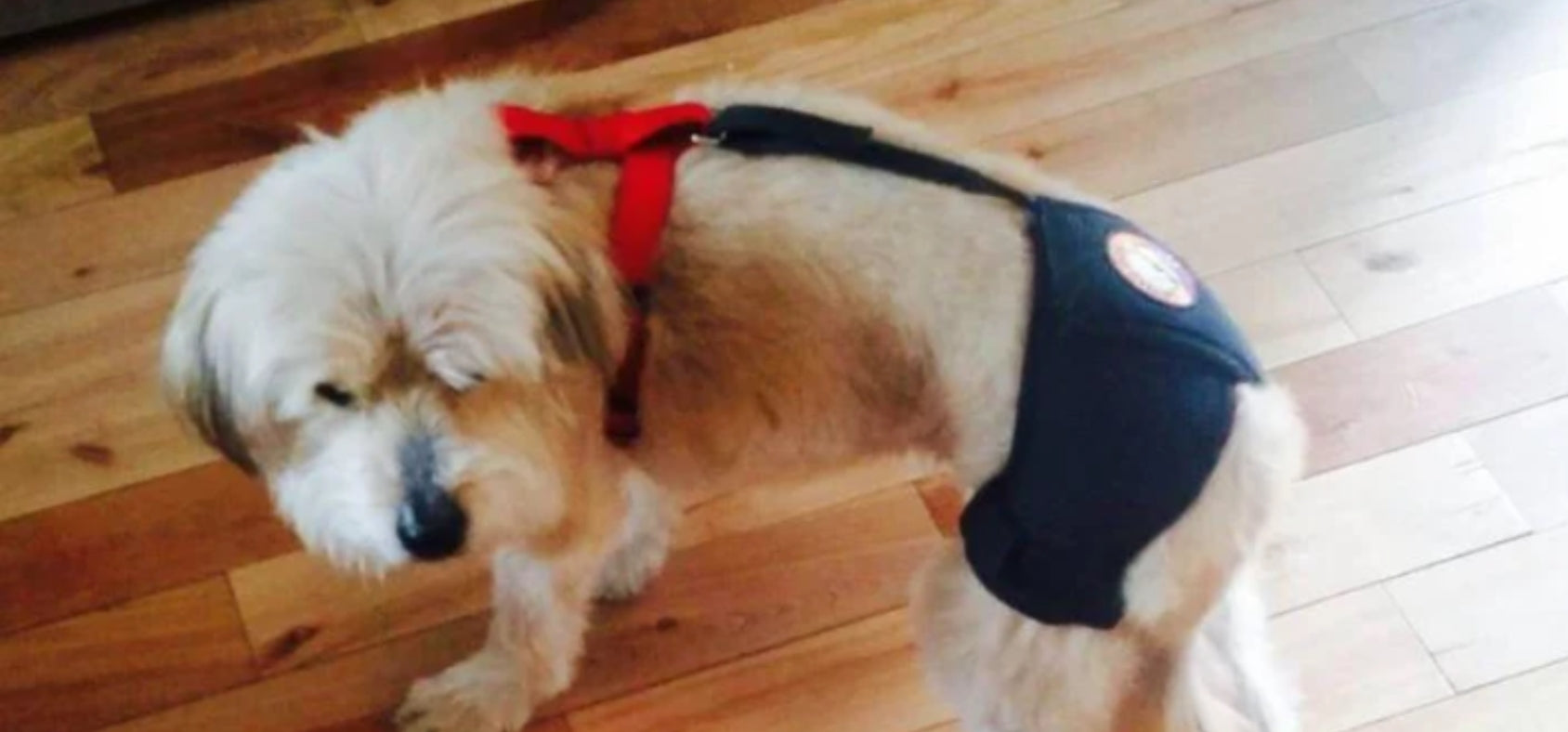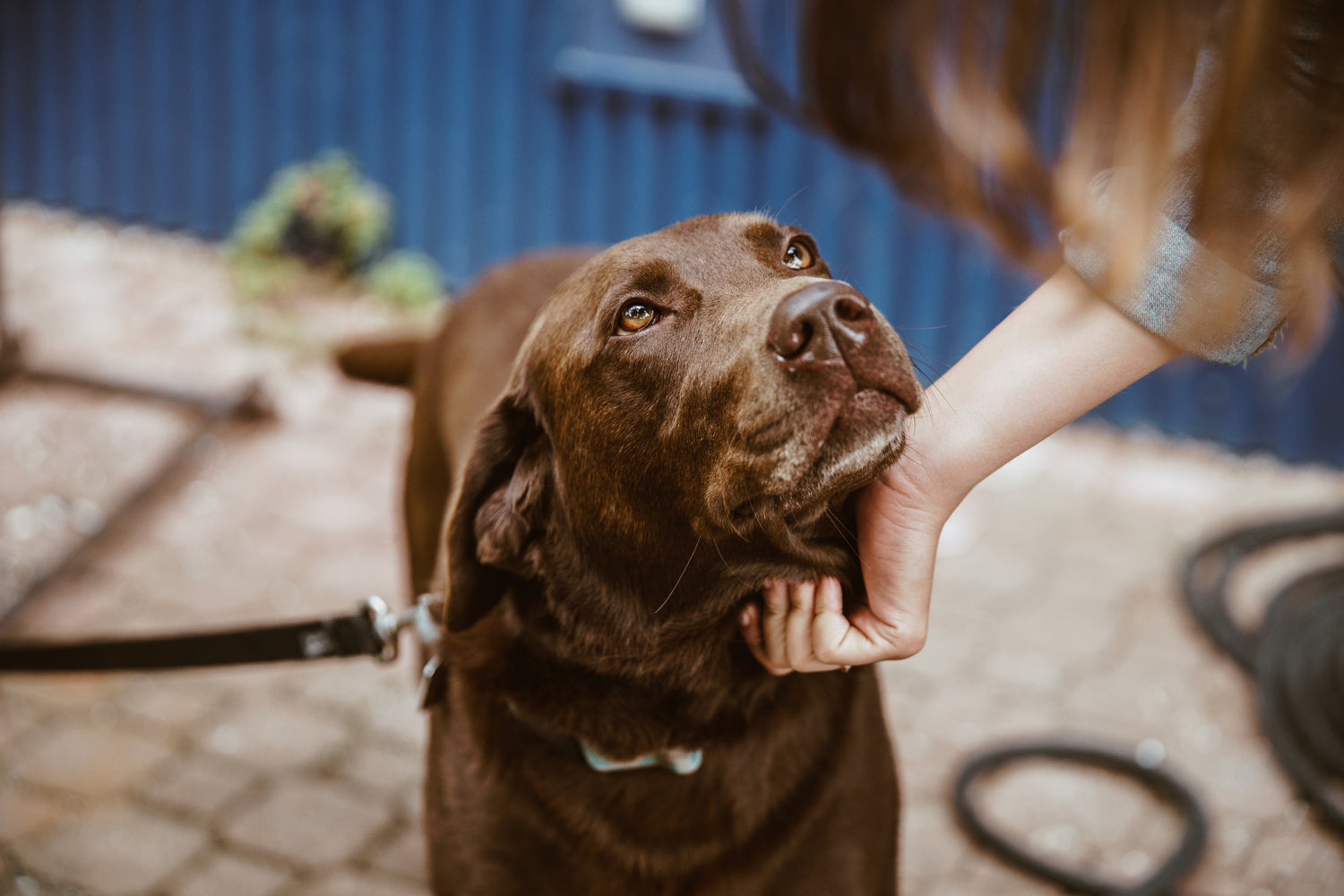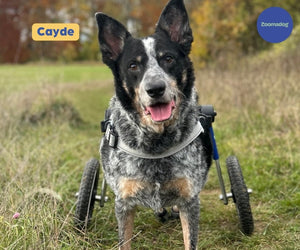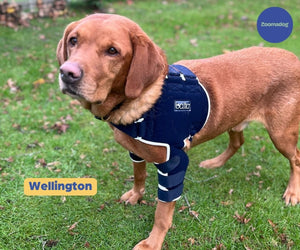01730 622544

Dogs Who Develop Hip Dysplasia
How Do Dogs Develop Hip Dysplasia?
Hip dysplasia in dogs is a genetic disease. It primarily affects large and giant breeds of dogs, but can also affect medium-sized breeds, and some small breeds. It's primarily a disease of purebreds, although it can also occur in mixed breeds.
Dogs that develop hip dysplasia suffer from an abnormal joint structure and a laxity of the muscles, connective tissue, and ligaments that would normally support the dog's hip joints.
As the disease progresses, the articular surfaces of the two bones lose contact with each other. This separation of the two bones within the joint causes a drastic change in the size and shape of the articular surfaces.
Most dogs who develop hip dysplasia are born with normal hips, but due to their genetic make-up the soft tissues surrounding the joint develop abnormally. This leads to hip dysplasia symptoms seen in dogs. The disease may affect both hips, or only the right or left hip.
Symptoms of hip dysplasia in dogs:
- Cause the afflicted dog to walk or run with an altered gait, similar to a bunny-hop.
- You'll notice your dog begin to resist any movement that requires full extension or flexion of the rear legs.
- Your dog will experience stiffness and pain in their rear legs after exercising and on first rising in the morning.
- Climbing stairs becomes difficult if not impossible.
- Some dogs will limp and are less willing to participate in normal daily activities, including walks they formerly enjoyed.
Because hip dysplasia is primarily an inherited condition, there are no products that can prevent its development. As soon as you notice the symptoms of hip dysplasia in your dog, take them to the vet for a check-up.
Through proper diet, exercise, and a supplement such as Winston's Joint System, you can slow, and sometimes halt, the progression of these degenerative joint diseases while providing your dog with relief from its pain. Winston's provides many of the raw materials essential for the synthesis of the joint-lubricating synovial fluid as well as the repair of articular cartilage and connective tissue.
Dogs Who Develop Hip Dysplasia
Dogs who are prone to develop hip dysplasia include the following (alphabetical order):- Afghan Hound
- Airedale Terrier
- Akita
- Alaskan Malamute
- American Eskimo Dog
- American Staffordshire Terrier
- American Water Spaniel
- Anatolian Shepherd
- Australian Cattle Dog
- Basset Hound
- Beagle
- Belgian Malinois
- Belgian Sheepdog
- Bernese Mountain Dog
- Bichon Frise
- Black and Tan Coonhound
- Black Russian Terrier
- Bloodhound
- Border Collie
- Border Terrier
- Bouvier des Flandres
- Boxer
- Brussels Griffon
- Bulldog
- Bullmastiff
- Cardigan Welsh Corgi
- Chesapeake Bay Retriever
- Chinese Shar-Pei
- Chow-Chow
- Collie
- Curly-Coated Retriever
- Dalmatian
- Doberman Pinscher
- English Cocker Spaniel
- English Foxhound
- English Setter
- English Springer Spaniel
- French Bulldog
- German Shepherd
- German Shorthaired Pointer
- German Wirehaired Pointer
- Giant Schnauzer
- Golden Retriever
- Great Dane
- Great Pyrenees
- Greater Swiss Mountain Dog
- Irish Setter
- Irish Water Spaniel
- Irish Wolfhound
- Keeshond
- Labrador
- Lhasa Apso
- Mastiff (and American Mastiff)
- Newfoundland
- Norwegian Elkhound
- Old English Sheepdog
- Pembroke Welsh Corgi
- Pointer
- Portuguese Water Dog
- Pug
- Rhodesian Ridgeback
- Rottweiler
- Saint Bernard
- Samoyed
- Shetland Sheepdog
- Shiba Inu
- Shih Tzu
- Siberian Husky
- Staffordshire Bull Terrier
- Standard Schnauzer
- Weimaraner
- Welsh Springer Spaniel
Since 1990, Winston's Joint System and Winston's Pain Formula have helped heal over twenty thousand dogs from all over the world. Our staff specializes in hip dysplasia, arthritis and all joint, pain, and mobility issues.

Looking for help with your dog?
We can help find the right solution for your dog
Feel free to give us a call on 01730 622544
or email us at woof@zoomadog.co.uk







Leave a comment